5 Reasons to Write Your Child – No Matter What

When I was a little girl, I had an Aunt Joan who would always send me cards. Every holiday I would peek into the mailbox and see her familiar handwriting on that heavy white envelope. She sent a Christmas card. Birthday. Easter. Fourth of July. No holiday went by without a letter from Aunt Joan. And each one made me feel special. Loved. Remembered. Encouraged.
Continue Reading ›What Do Chocolate, Clubs and Hope Have in Common?

A few years ago, we launched Compassion’s Second Friday Letter Writing Club. We wanted to create a place for sponsors to share letter-writing ideas and stories about the impact of letters on the children we serve. We’ve been amazed at the response. More than 180 of you joined our collaborative Pinterest board, collectively pinning nearly 1,000 ideas for your letters and for the more than 18,000 followers of the board. Many of you have shared fun ideas in comments on the blog posts. But at the same time, there’s been a lot of change in the past year. Our guidelines and processes for letter writing have changed, and there have been some bumps along the way.
Continue Reading ›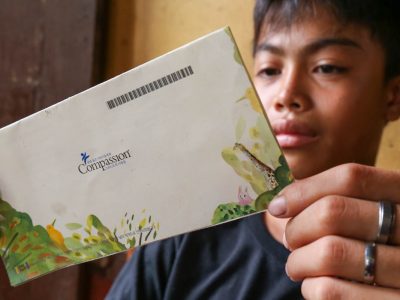
How Much Love Can You Fit in an Envelope?
I was 10 years old when I went to summer camp for the first time. I still remember the feeling as my mom drove away in our family’s station wagon. Utter and complete dread. I cried in the nurse’s office that night, clutching my stomach, telling her I was sick. She understood what I couldn’t. Sadness can feel a lot like a stomachache.

What Children Really Want to Hear From Their Sponsors
Even sponsors who have been writing for years still ask, “What should I write about?” Well, instead of us giving you ideas of what to write this month for the Second Friday Letter-Writing Club, we decided to share from a trusted source what children really want to hear from their sponsors and the importance of letter writing.

Comfort Found in the Words of Her Sponsors
With no money, a drunken, violent father and a community plagued with malnutrition, one little girl found comfort in the words of her sponsors. This powerful story reminds us once again of the importance of letter writing.

Sticks and Stones May Break My Bones
Every person knows that deep down, hurtful words DO hurt. As a parent, I have heard it said over and over that for every negative thing I’ve ever said to my children, it needs to be countered with five to ten positive things. We should change the rhyme to: “Sticks and stones may break my bones, but words will always help me.” Let’s explore the importance of letter writing and the power of your positive words to the child you sponsor.

Do My Letters Make a Difference?
These few pictures from our moments with these children and their families in Ecuador don’t do it justice. Their emotions were raw and filled with such optimism and hope. A hope given to each of them in the words and truth found in your written words.

Being a Compassion Family
Sponsoring these children was initially my idea as a mom, but these relationships have become a family affair – and we’re all better off for it.
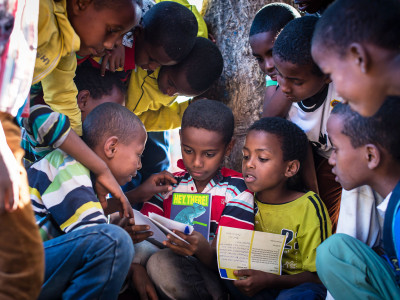
Conversations with Alumni: What if I Don’t Write My Sponsored Child? [VIDEO]
Here on the blog, we’ve talked a lot about the importance of letter writing and how much your words have power in the life of the child or teen you sponsor.
And we’ve talked about how, sometimes, it’s the absence of words that has power too… leaving questions like:
Am I thought of?
Why did they choose me?
Who is the person who has invested in my life?
When you choose to invest in the life of a child through sponsorship, beyond giving money, you also get the opportunity to be involved in their lives. And it is equally important to let them be involved in yours!
There are many ways you can do so, from sending letters, stickers, pictures and birthday cards to sending gifts or even taking a trip to visit him or her.
This investment in relationship with your sponsored child is where the alumni and research consistently says the lasting difference was made in changing their story!
This week in our special video blog series, Conversations with Alumni, hear a candid conversation between alumni about their sponsors’ level of involvement in their lives.
(more…)

Letter Writing: Lost In Translation
When we wrote the blog post “30 Adorable Things Kids Say,” it was no surprise we saw a great response from you on the blog and Facebook about the joy contained in the letters you receive from your little family member in their far away land. Even through separation of distance and culture, you are developing a beautiful and genuine relationship. Your sponsored child’s letters contain more than just words. So to make sure the cute things they say never get lost in translation, here is our latest infographic to use as a fun and handy translation guide!

What to Expect from the Letters From the Child You Sponsor
Working in the Compassion USA Contact Center, I get the opportunity to help answer the questions of Compassion sponsors over the phone, via email, or online about the children they sponsor. And often there are questions about the letters sponsors receive from them.
Building a relationship through letter writing is one of the most important things you can do to offer hope to the child you sponsor. So here are a few of the questions I get from time to time. Hopefully, they’ll help you know a little about what to expect from the letters you receive while you are building that fruitful relationship.
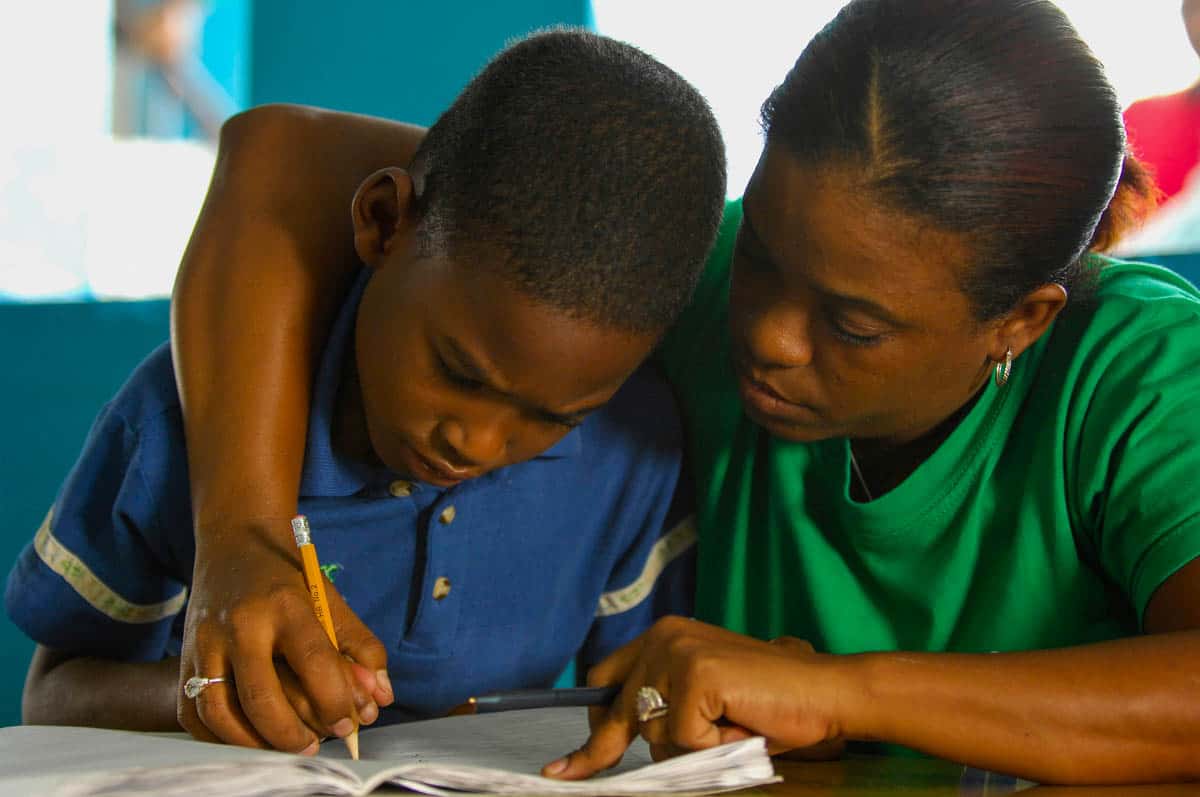
Why can’t he read or write yet?
A few weeks ago, I talked with Roberta* who sponsors a 10-year-old boy in Burkina Faso. Roberta was confused about why the boy she sponsored was not yet able to write letters on his own and why he had to have a tutor dictate each letter for him. She felt that he should be able to write his own letters by now and thought there must be something amiss.
I explained to Roberta that, in some cases, children are not able to start school until they are registered in the Compassion program, which could be as late as age 9. School systems may also look very different there. We think of 9-year-old children in the U.S. as having at least three years of schooling and reading and writing skills. But some of the children in Compassion’s programs are just learning literacy at age 9, and many parents are also illiterate, giving their children few role models.
Sometimes we simply do not realize the incredible challenges that the children we sponsor in impoverished communities face as they seek to escape from extreme poverty. This might cause us to expect things from them that they really are not able to give to us.
Why hasn’t he answered my questions?
In many cases, when a child receives a letter from his sponsor, he takes it home to show his family, and then saves it in a “special place” because he is SO proud to have a letter! If this is the case, you might wonder why Jose has not answered you when you asked him what his favorite color was.
Letters are often written as part of a class exercise so staff can provide adequate help and attention to individual children as they write their letters. Several weeks after Jose received your letter, the staff at the student center would have scheduled a time for all the children to write letters to their sponsors. Jose may not have had the last letter with him and may not have remembered the questions you asked.
This is why if you underline or highlight your questions, the staff will copy down these questions and make sure that your children are able to answer them.
Most children in from under-resourced communities cannot imagine why anyone would be interested in how tall they are or how much they weigh. Many cultures are much more private about that type of information and children might not think that the sponsor really wants to know such information. Also, it may be considered vain to be discussing personal things about themselves.
Why isn’t there more depth in her letters?
I don’t know about you, but I can remember that as a child in school, when my teachers asked me to write thank-you letters to adults, my letters were a bit shaky. Actually, my letters probably sounded rather distant and formal. Part of that was due to the fact that I had absolutely no idea what to say to these adults, and how to say thank you for whatever they had done for me and my class at school. As I had more practice in writing letters, I know they got better and sounded less formal, forced and aloof.
Along the same lines, cultural differences may cause the letters from the child you sponsor to seem excessively pious or religious. For example, in Uganda, it is common to begin a letter with “Praise God!”
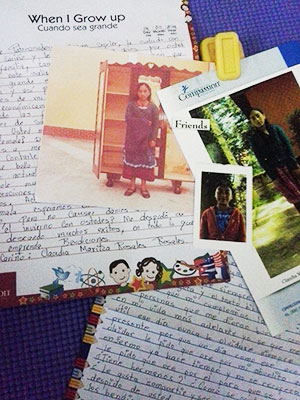 In many cases, a child’s personality will come through in his or her letters. If they are more outgoing, they might be little chatterboxes in their letters. If they are shy, maybe they will have more trouble sharing personal information than other children. In the same way, some children are more comfortable discussing their faith than others.
In many cases, a child’s personality will come through in his or her letters. If they are more outgoing, they might be little chatterboxes in their letters. If they are shy, maybe they will have more trouble sharing personal information than other children. In the same way, some children are more comfortable discussing their faith than others.
About four years ago, I started sponsoring a beautiful young lady named Claudia.
Little did I know, before I had sponsored Claudia, she had been sponsored by someone else. Compassion’s sponsorship program is a one-to-one sponsorship program, but sometimes sponsors come and go over the course of a child going through our program. So sweet Claudia had already been through the experience of being sponsored for four years by someone else with whom she wrote letters back and forth.
Then one day, for one reason or another, the sponsor stopped sponsoring Claudia. No wonder our relationship started off a bit distantly! Was she afraid to connect too much with me only to see me go again? I’m not sure. All I know is that it took a few years of sending faithful and loving letters of encouragement before Claudia started to open up to me a little in her letters.
Why doesn’t she tell me more about the Compassion program?
A while back, I had a tough conversation with another sponsor named Jerry.* He was frustrated with something in the letters he was receiving, or rather what was lacking. Over the course of our conversation, it became clear that Jerry had expected the letters to prove that his money was getting to where it was supposed to be, and that Compassion was operating above board. For whatever reason, the letters from the child he sponsored were not communicating that to him, and I would argue that they never could.
The child or teen you sponsor will not always be able to communicate what your sponsorship has meant to him or her and that your money is going a long way to lift he or she out of poverty. They may not have a high enough vocabulary yet to be able to communicate the significant changes they are experiencing. They may not even realize that they receive “support,” because the benefits of the program are given through their local church in the form of goods and services and not cash.
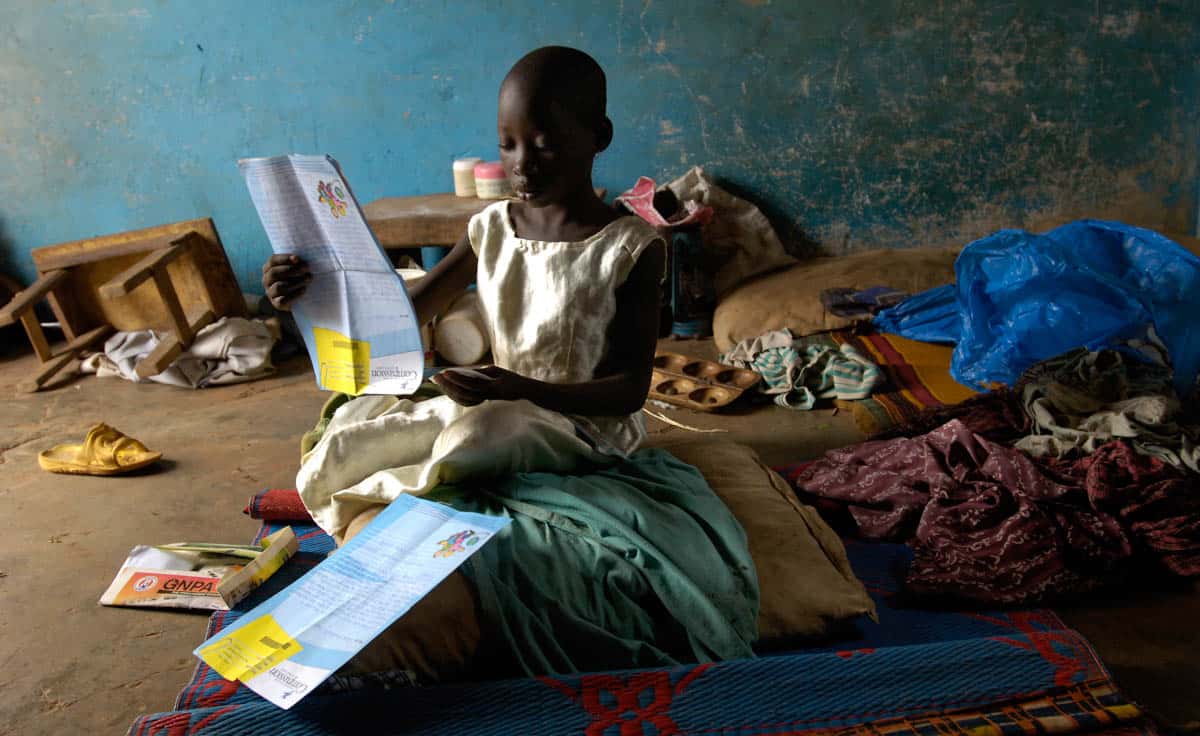
What do my letters mean?
My prayer is that you would see letter writing as a mentoring relationship. Your consistent letters of encouragement will communicate to your child, “I care about you and I want to be a part of your life.” There is power in that.
I can tell you that I have been blessed by God through my decision to be a sponsor; completely separate from anything that Claudia herself could ever give to me. Sure, it has been an absolute joy hearing her sweet jokes in her letters, her wisdom expressed, and watching her grow. I have had the amazing honor of being a part of Claudia’s growing years by loving and encouraging her through the ages of 12 to 16. She’s changed so much, and I love that I get to be a part of that!
This has all been an added blessing that could not be coaxed out of her. It is the same way that Christ gave to me. He did not love me because I would love Him back. No, while I was still lost in my sin, Christ died for me. I love and give to Claudia out of this same grace that I have experienced – without an expectation of what she will give back to me. What I do get back is an extra grace, an unexpected blessing.
*Name changed for privacy
Have more questions about the letter-writing process? Leave a comment below.

Do You Make a Difference?
Ever feel that your sponsorship doesn’t matter? That your letters don’t make a difference? That you don’t make a difference?


